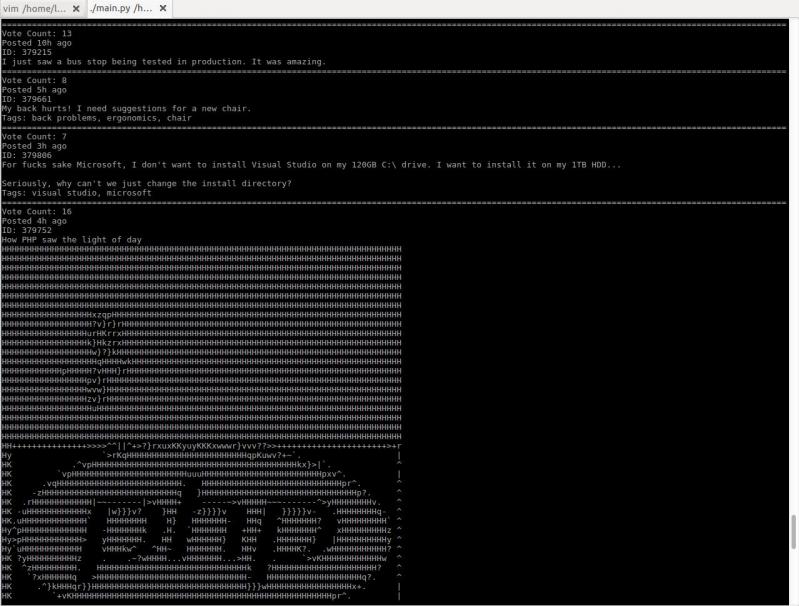Join devRant
Do all the things like
++ or -- rants, post your own rants, comment on others' rants and build your customized dev avatar
Sign Up
Pipeless API

From the creators of devRant, Pipeless lets you power real-time personalized recommendations and activity feeds using a simple API
Learn More
Related Rants

 No questions asked
No questions asked As a Python user and the fucking unicode mess, this is sooooo mean!
As a Python user and the fucking unicode mess, this is sooooo mean! I just started working on a little project to browse devrant from terminal. It converts images to ascii art!
I just started working on a little project to browse devrant from terminal. It converts images to ascii art!
This spring I was working on a library for an algorithm class at uni with some friends and one of the algorithm was extremely slow, we were using Python to study graphs of roads on a map and a medium example took about 6-7h of commission to finish (I never actually waited for so long, so maybe more).
I got so pissed of for that code that I left the lab and went to eat. Once I got back I rewrote just the god-damned data structure we were using and the time got down to 300ms. Milliseconds!
Lessons learned:
- If you're pissed go take a walk and when you'll come back it will be much easier;
- Don't generalize to much a library, the data structure I write before was optimized for a different kind of usage and complete garbage for that last one;
- Never fucking use frozen sets in Python unless you really need them, they're so fricking slow!
rant
wk117
algorithm
graph
python